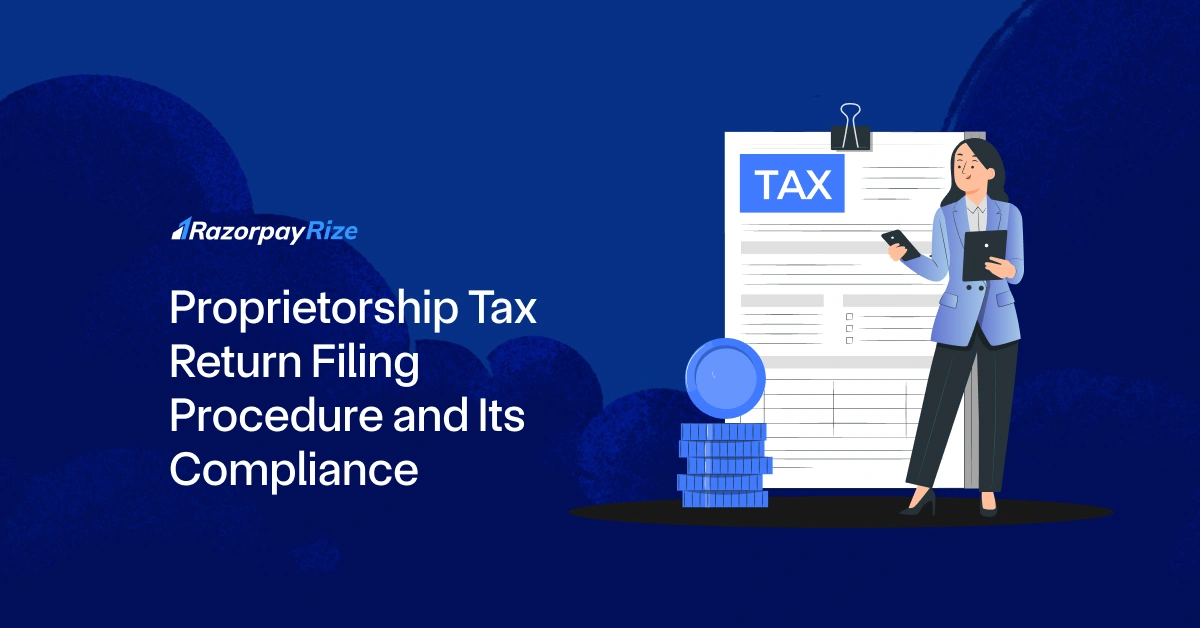Are you an aspiring entrepreneur looking to start your own business? One of the crucial decisions you'll need to make is whether to structure your company as a private or public entity. Understanding the difference between private company and public company is essential for entrepreneurs, businessmen, and investors as it impacts ownership structure, funding, regulations, and operational transparency.
Entrepreneurs and businessmen can choose the right structure for growth and compliance while investors evaluate risks, liquidity, and returns. Public companies are listed on stock exchanges, allowing easier capital access but with stricter compliance and disclosure requirements.
Private companies offer more control and flexibility but limited fundraising options. This knowledge helps stakeholders make informed decisions regarding growth strategies, ultimately aligning their goals with the company's structure.
In this article, we'll dive deep into the characteristics of a private company and a public company, highlighting their key features, advantages, and differences. By the end, you'll have a clear understanding of which structure suits your venture best.
Table of Contents
What is a Public Company?
A public company, also known as a publicly traded company, is a corporation whose shares are freely bought and sold by the public on stock exchanges or over-the-counter markets. Key aspects of a public company include:
- Unlimited number of shareholders.
- Shares are publicly traded and easily transferable.
- Must issue a prospectus before offering shares to the public.
- Strict disclosure and reporting requirements.
- Ability to raise substantial capital through public markets.
- Governed by a board of directors responsible to shareholders.
Public companies must comply with stringent regulations set by securities commission like the the Securities and Exchange Board of India (SEBI). These regulations ensure transparency, protect investor interests, and maintain market integrity.
Features of Public Limited Company
- Free transferability of shares: Shares can be freely bought and sold on stock exchanges, providing liquidity to investors.
- No limit on number of shareholders: There is no restriction on the maximum number of shareholders a public company can have.
- Prospectus requirement: Public companies must issue a prospectus before offering shares to the public, disclosing key information about the company.
- Public disclosure of financials: Public companies are required to publicly disclose their financial statements on a regular basis.
- Strict compliance norms: Public companies are subject to stringent regulations and disclosure requirements set by governing bodies like SEBI.
- Access to capital markets: Public companies can raise substantial funds from a large pool of investors through various securities like IPOs, FPOs, rights issues and preferential allotments.
- Listing on stock exchanges: The shares of public companies are listed and traded on recognised stock exchanges.
What is a Private Company?
A private company, also referred to as a privately held company, is a business entity whose shares are not publicly traded. Ownership is closely held by a limited group of shareholders, such as founders, family members and private investors. Key characteristics of a private company include:
- Limited to a maximum of 200 shareholders
- Shares are privately owned and not freely transferable
- Minimal disclosure requirements and greater privacy
- Raising capital through private means like angel investors or venture capital
- Closely controlled and managed by founders and early investors
Private companies have more flexibility in their operations and decision-making as they are not subject to the same level of public scrutiny and regulatory oversight as public companies.
Features of Private Company
- Restricted share transfer: Shares of a private company cannot be freely transferred and are subject to restrictions outlined in the company's articles of association.
- Limited number of shareholders: Private companies can have a maximum of 200 shareholders.
- No prospectus requirement: Private companies are not required to issue a prospectus to the public for raising funds.
- Confidentiality of financial information: The financial statements of private companies are not publicly disclosed and remain confidential.
- Fewer compliance requirements: Private companies have lesser compliance and regulatory filing requirements compared to public companies.
- Flexibility in management: Private companies have greater flexibility in their management structure and decision-making processes.
- No requirement for a statutory meeting: Private companies are not required to hold a statutory meeting or file a statutory report.
Public Company Vs Private Company
Following are the key differences between public and private companies:
The choice between operating as a public or private company depends on various factors such as the company's capital requirements, desired level of control and flexibility, willingness to disclose financial information, and long-term objectives.
Can A Public Company Convert into a Private Company and Vice Versa?
Yes, a public company can be converted into a private company and vice versa, subject to certain conditions and procedures outlined in the Companies Act 2013.
To convert a public company into a private company, the following steps need to be taken:
- Pass a special resolution in a general meeting of the company to approve the conversion.
- Alter the company's memorandum and articles of association to reflect the changes required for a private company.
- File an application with the National Company Law Tribunal (NCLT) for approval of the conversion.
- Obtain approval from the NCLT after considering any objections or suggestions from regulatory authorities or other stakeholders.
- File the NCLT order approving the conversion with the Registrar of Companies (ROC) within 30 days.
- The ROC will issue a fresh certificate of incorporation reflecting the company's status as a private company.
Similarly, a private company can be converted into a public company by following these steps:
- Pass a special resolution in a general meeting of the company to approve the conversion.
- Alter the company's memorandum and articles of association to comply with the requirements of a public company.
- Increase the number of directors to the minimum required for a public company (3 directors).
- File an application with the ROC for approval of the conversion.
- Obtain approval from the ROC after ensuring compliance with all the necessary provisions.
- The ROC will issue a fresh certificate of incorporation reflecting the company's status as a public company.
Conclusion
Understanding the differences between private and public companies is crucial for entrepreneurs, investors and other stakeholders. While public companies offer the advantage of access to public capital and liquidity for shareholders, they also face stricter compliance requirements and public scrutiny. On the other hand, private companies provide greater control and flexibility to shareholders but have limitations in raising capital and providing liquidity to investors.
Regardless of the choice, both private and public companies play vital roles in the economy, driving innovation, creating jobs, and contributing to overall economic growth. Understanding their distinct characteristics and the implications of each structure is essential for navigating the complex world of business and making sound decisions.
Frequently Asked Questions
Private Limited Company
(Pvt. Ltd.)
- Service-based businesses
- Businesses looking to issue shares
- Businesses seeking investment through equity-based funding
Limited Liability Partnership
(LLP)
- Professional services
- Firms seeking any capital contribution from Partners
- Firms sharing resources with limited liability
One Person Company
(OPC)
- Freelancers, Small-scale businesses
- Businesses looking for minimal compliance
- Businesses looking for single-ownership
Private Limited Company
(Pvt. Ltd.)
- Service-based businesses
- Businesses looking to issue shares
- Businesses seeking investment through equity-based funding
One Person Company
(OPC)
- Freelancers, Small-scale businesses
- Businesses looking for minimal compliance
- Businesses looking for single-ownership
Private Limited Company
(Pvt. Ltd.)
- Service-based businesses
- Businesses looking to issue shares
- Businesses seeking investment through equity-based funding
Limited Liability Partnership
(LLP)
- Professional services
- Firms seeking any capital contribution from Partners
- Firms sharing resources with limited liability
Frequently Asked Questions
What is a Public company?
A public company is a business entity whose shares can be freely bought and sold by the general public on stock exchanges. These companies are subject to stringent regulations and are required to disclose their financial information regularly.
What is a private company?
A private company is a business entity that is privately held and does not offer its shares to the general public. The ownership of a private company is limited to a small group of shareholders, and the shares are subject to transfer restrictions.
Can private limited companies issue shares?
Yes, private limited companies can issue shares to their existing shareholders or to new investors. However, the transfer of these shares is restricted and subject to the consent of other shareholders or the company's articles of association.
Is it better to be a private company or a public company?
The choice between being a private or public company depends on various factors such as the company's capital requirements, desired level of control and flexibility, willingness to disclose financial information, and long-term objectives. Each structure has its own advantages and disadvantages, and the decision should be based on a careful evaluation of the company's specific needs and goals.
Is it easier for public companies to raise capital than it is for private companies?
Yes, public companies generally have an easier time raising capital compared to private companies.
Public companies can access a larger pool of investors by offering their shares to the general public through capital markets. They can raise substantial funds through various means, such as initial public offerings (IPOs), follow-on public offerings (FPOs), rights issues and preferential allotments.
Private companies, on the other hand, rely on private funding sources such as promoter capital, venture capital, private equity, and debt financing, which can be more limited and challenging to secure.
Who can invest in a private company?
Investment in a private company is typically limited to a small group of shareholders, which may include the founders, family members, friends, and private investors such as angel investors, venture capitalists, and private equity firms.
These investors are often accredited and have a higher risk tolerance compared to the general public. The shares of a private company are not freely traded on stock exchanges and are subject to transfer restrictions outlined in the company's articles of association or shareholder agreements.
















